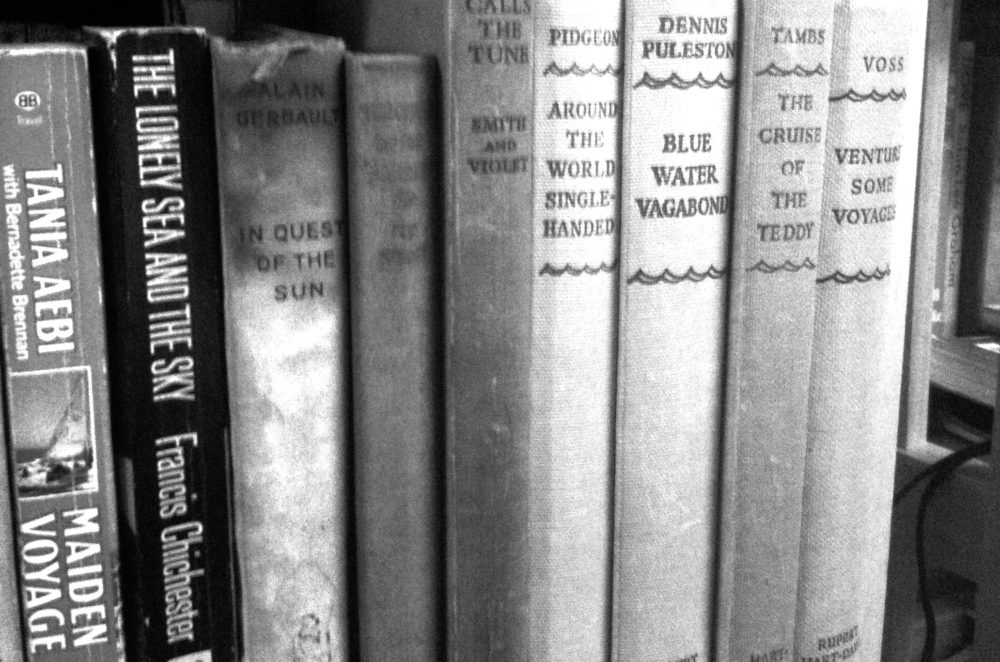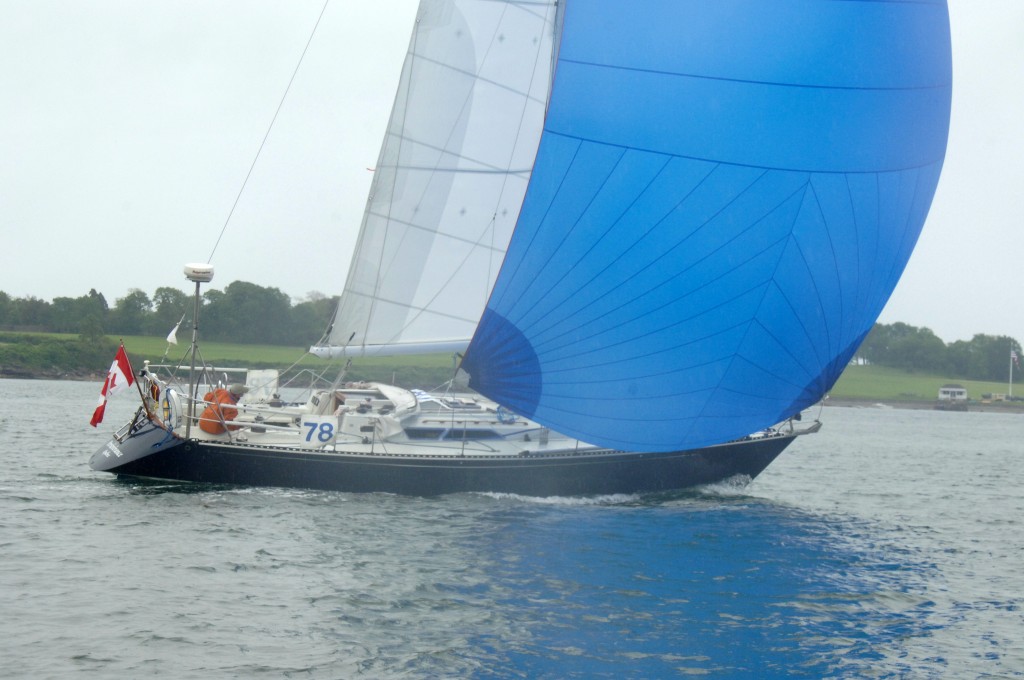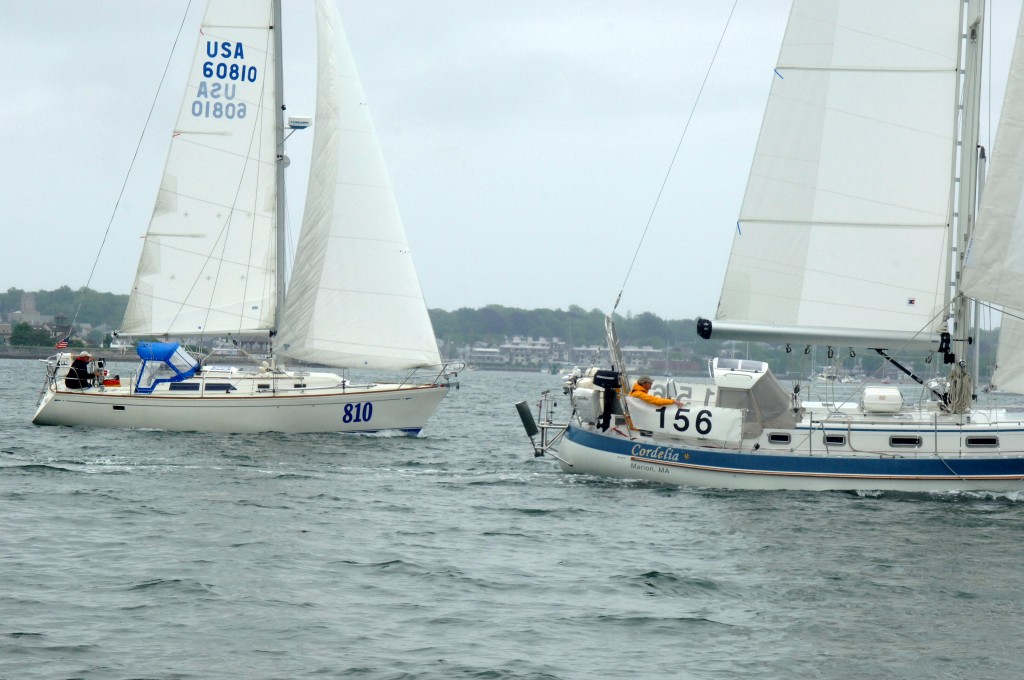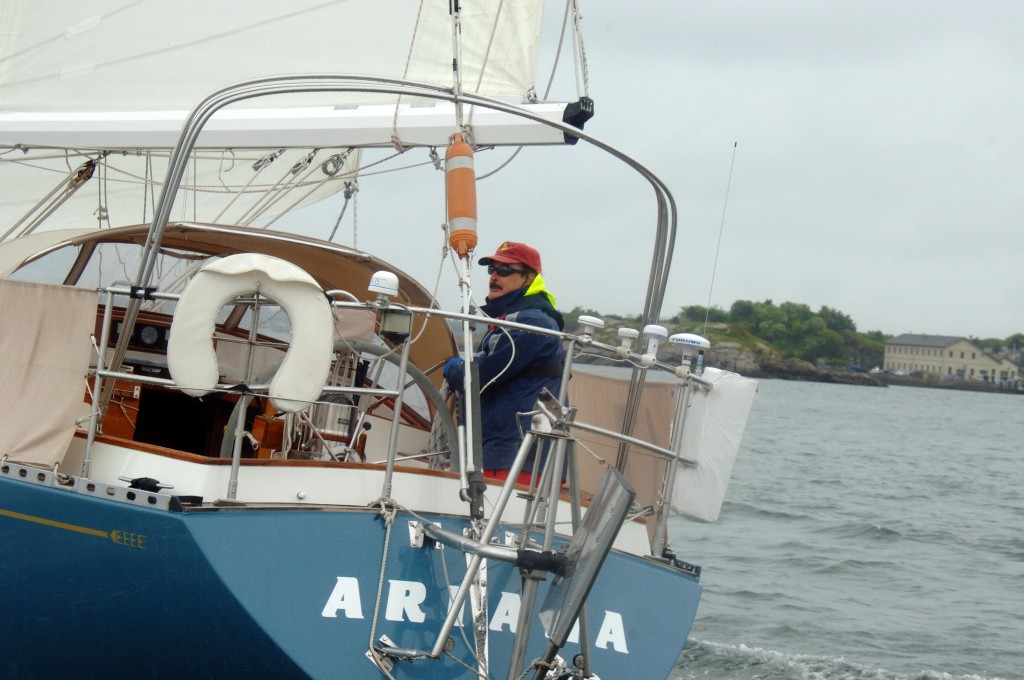For those students of single-handed and double–handed sailing, November has two
“don’t miss” events coming up. One is in Newport RI, the other in La Rochelle, France
Save the date, especially if you live in the Northeast. On Saturday 03 November 2012 at Newport Yacht Club, on Long Wharf in Newport, RI. NYC hosts the annual gathering of the Bermuda 1-2 group. From 1530 on.
The Bermuda 1-2 is the oldest continually running single handed ocean race in the north east and is one year older than the Single handed Transpac, first run in 1978, according to info on the Single-handed Transpac’s website–And I am happy to be corrected on this detail. The point is the Bermuda 1-2 has been around for a long time and has acted as a proving ground for several sailors who have gone on to bigger single handed races, such as the O.S.T.A.R and the (formerly BOC & Around Alone) Velux Five Oceans.
This November meeting is open to all who are interested in meeting the kind of challenge that such a voyage poses. I.E. preparing and sailing one’s own yacht from Newport To Bermuda and then Double Handed return race back to Newport. There are few, if any, activities in today’s world where the skill, cunning, experience, will, and many of the other human characteristics we all envy in those who possess them, are required, and often wished for in greater quantities, than sailing one’s own boat on this course across the Gulf Stream alone.
If you find yourself inclined to see just how good a sailor AND seaman you are, not on a sunny day on Block Island Sound but the inner you, that needs to come to the surface half way to Bermuda, in hard weather, all the while wet, cold, tired, hungry and let’s say, a bit anxious, then this race is for you. One precise reason to come to this gathering is to meet the sailors who have “been there and done that” as they saying goes. Broken spars, damaged sails, getting sails (spinnakers) down in the midst of a squall, thru hull leaks, broken rudders, engine (and so electricity) failures and so on. Without placing too much emphasis on the crummy stuff, a veteran sailor will keep close the Prussian Army’s dictum about “plans rarely surviving contact with the enemy”. The essence of this, and all sailing for that matter, is in the preparation. The sailing is easy, it is the seaman ship that is the challenge.
And you don’t need to have a large ocean going yacht, although it does need to be over 30 feet LOA.
Like many grand endeavors, such as a marathon or a personal best in some activity, the first successful completion of this passage is a land mark in a sailor’s life. It is a called a race but the bulk of the competitors are sailing in “normal” boats much like the boats the rest of us have.
I will say that for those of us of a certain age, the camaraderie is very similar to the “Old Days” where the competitors all help each other, exchange tools, how-to tips, weather information and so on.
And even if you are, shall we say NOT in the market, for the race proper (in 2013), it is an ideal venue to talk with a great group of sailors, men AND women. If you want to start slowly, the Newport Yacht Club also hosts two other events for single and double-handed sailors. Thus you can come and test the waters in say the New England Solo Twin held annually in July or the Offshore 160 held in the off years, I.E. even numbered years opposite the Bermuda 1-2 There is also a calendar (still to be filled in fully for 2013) with all the short handed races I can find between Annapolis and Maine.
So, for Saturday 03 November:
• The official gathering time is 1530, for a couple of beers and catch up with mates, old and new. Folks are often there from about 1500 on.
• There is a Forum beginning at 1600 that includes an introduction around the room of who is who and their goals.
• The Forum includes discussion of changes to the race, since 2011 & comments by the Skippers Representative, Kris Wenzel, a multi-time (female) competitor.
• She has organized U. Conn Met man, Frank Bohlen to come and address us on the issues of weather, including Gulf Stream 101, on the course and I reckon THAT alone is worth the price of the gas and beers from anywhere on the north east coast.
The “Gam” concludes at 1700 and from then until 1900 general conviviality is the order of the day. There is a cash bar in the meeting space and Hor’s d’oeurvs are available. Frequently a few groups will wander off after 1900 to sample Newport’s restaurants too.
If you are coming, please contact Race C’ tee Chairman, Roy Guay at roy@royguay.net so he can get a head count for the munchies that the Yacht Club prepares.
The images used above were taken either by me or a long time ship mate and former (is there such a thing?) professional photographer Don Miller Photography. Unfortunately I cannot remember which ones he took-The better ones I guess.
You can see more of his fine work on his website
Used with out permission-I got to give him something to heckle me for
Hope to see you in Newport on the 3rd..
Cheers
Coop



